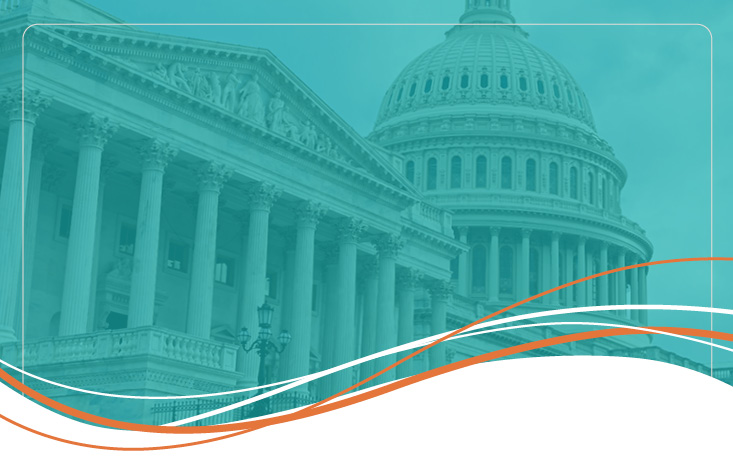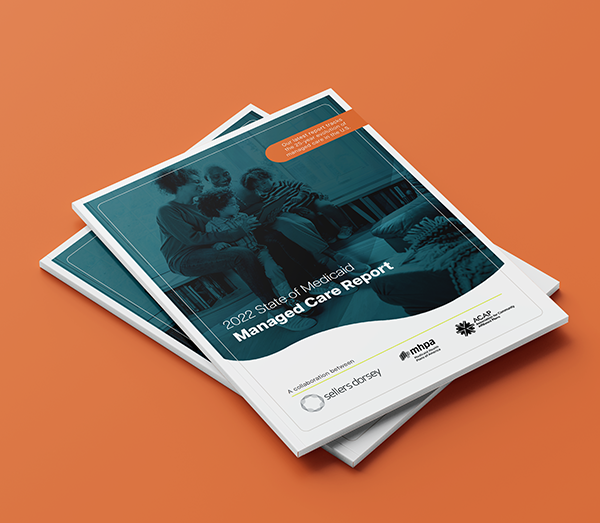New Jersey 1115 Waiver Extension Approval Overview

On March 30, CMS approved the extension of the New Jersey FamilyCare Comprehensive Demonstration. The renewal preserves and extends several authorities formerly authorized, in addition to building on existing programs with new initiatives and investments. These innovative programs focus on continuous eligibility, coverage expansion, and health-related social needs (HRSN) through several new initiatives: the Behavioral Health Promoting Interoperability Program (BH PIP), targeted coverage of certain services that address HRSN including food and transitional housing supports, Community Health Workers Pilot, Autism Adjunct Services Pilot, and 12 months of continuous eligibility for individuals eligible for Medicaid based on Modified Adjusted Gross Income. Of note, the waiver did not explicitly address workforce issues or the specific budget neutrality amount. The waiver approval will further the State’s goal to improve coverage, access, and deliver high-quality services while also advancing health equity. The five-year waiver approval is effective April 1, 2023 through June 30, 2028.
Program Components
Existing Authorities and Programs Maintained and Enhanced
- Extends managed care to include long-term services and supports (MLTSS) and certain behavioral health services.
- Provides targeted home and community-based services (HCBS) programs for children, services and in-home support for individuals with intellectual and developmental disabilities.
- Funds substance use services.
- Continues Medicaid financial eligibility determinations for individuals under guardianship of the Office of the Public Guardian.
- Expands current home visiting program pilot to all counties within the State.
- Expands access to HCBS by modifying eligibility to enrollees aged 18 and older who are beyond their educational entitlement.
- Extends full state plan benefits to postpartum individuals enrolled in Medicaid or CHIP for up to 12 months from the last day of an individual’s pregnancy.
- Makes Caregiver Supports and Training Program permanent and expands the program by incorporating individual and group counseling for informal/unpaid caregivers providing services to MLTSS beneficiaries within the community setting and expanding the benefit limit for respite services.
New Initiatives and Investments
Behavioral Health Promoting Interoperability Program (BH PIP)
The BH PIP approval authorizes the State to create a new incentive-based payment program to enhance health information technology (HIT) infrastructure to certain Medicaid providers. Behavioral health providers with a Medicaid patient volume of at least 20% (CHIP excluded) are eligible for the incentives and can earn these payments by meeting specified milestones that connect behavioral health information exchange (HIE) with other clinics and health offices across the State. The State may claim as allowable expenditures, up to $6 million (total computable) for five years, payments to incentivize health information technology (HIT) use and connectivity to the State’s HIE.
Housing and Nutrition Strategy
The approval enables the State to preserve or increase coverage of certain services that address HRSN. Specifically, the HRSN services the State will provide include housing and nutritional services and supports. Eligible individuals will receive a one-time pantry supply and education on preparing healthy meals and short-term grocery resources. Beneficiaries of MLTSS are identified by the MCO as being at-risk for unnecessary emergency department visits, hospital admissions, or institutional placement, and clinical factors that prevent acquiring groceries on an emergency basis. The State is also authorized to provide transitional housing supports to individuals experiencing homelessness or life transitions. The services will include case management, outreach, education, and infrastructure investments.
Medically Indicated Meals Pilot Program
The approval permits the State to provide HRSN services to pregnant beneficiaries that are diagnosed with pre-existing diabetes and/or gestational diabetes.
Community Health Workers Pilot
CMS is providing expenditure authority for New Jersey to support a set of Community Health Workers (CHW) pilots that will be administered by MCOs. The CHW pilots focus on eliminating health disparities and improving health quality and equity in local communities and include providing care coordination and/or preventative services to beneficiaries not otherwise covered under the managed care contract. MCOs will develop and submit proposals to the State for review and approval that outline interventions focused on beneficiary education, care management, and related CHW tasks. After granting preliminary approval to MCO proposals, the State will be required to submit to CMS a post-approval protocol within 90 days of implementation. Total statewide annual expenditures for the CHW pilots are limited to $5 million per demonstration year and will be effective through the end of the demonstration period.
Adjunct Services Autism Spectrum Disorder (ASD) Pilot
The approval authorizes the State to offer a new Adjunct Services Autism Spectrum Disorder (ASD) Pilot to support and provide beneficiaries living with autism with rehabilitative and therapeutic services. This pilot will test the impact of expanding the available options for youth with an ASD diagnosis by offering a limited package of adjunct services not coverable by the state plan. These services will only be available to individuals eligible for either New Jersey Medicaid or CHIP with an ASD diagnosis up until their 21st birthday. The services offered are intended to enhance inclusion in the community rather than clinic-based settings. Services offered include art therapy, aquatic therapy, hippotherapy/therapeutic horseback riding, music therapy, drama therapy, dance/movement therapy, and recreation therapy. All services are subject to state-developed cost-effectiveness requirements.
Continuous Eligibility
The approval authorizes the State to provide 12 months of continuous eligibility to adults whose Medicaid eligibility is based on Modified Adjusted Gross Income (MAGI). By keeping beneficiaries enrolled for 12 months regardless of income fluctuations or other changes that would affect eligibility (except for death or ceasing to be a resident of New Jersey), this new initiative promotes health coverage and equitable access.
New Jersey Home Visiting Pilot (NJHV) Program
Under this pilot program, the State will provide evidence-based home visiting services by licensed practitioners or certified home visitors to up to 500 families each demonstration year. Home visiting services are intended to promote enhanced health outcomes, whole person care, and community-integration for high-risk pregnant individuals, parents of children up to three (3) years old, and children up to two (2) years old for the Nurse Family Partnership (NFP) and up to three (3) years old for Healthy Families America (HFA) and Parents as Teachers (PAT) in all counties throughout the State. The program is aligned with three evidence-based models focused on the health of pregnant individuals.
Universal Home Visitation (UHV) Program
The approval authorizes statewideness and expenditure authority for selective contracting for the State’s UHV program. This program was introduced through legislation to provide all New Jersey residents access to up to four postpartum home visits. In the future, the State plans to expand this program statewide through a waiver.
Waiver Requests Not Currently Approved
At this time, CMS is not approving:
- Transitioning the State’s Certified Community Behavioral Health Clinic program that is currently authorized under Section 223 of the Protecting Access to Medicare Act to 1115 demonstration authority.
- Authority for a Supportive Visitation Services program.
New Jersey and CMS will continue to discuss:
- Medicaid reimbursement for a maximum of 4 behavioral health management visits for incarcerated Medicaid enrollees who have behavioral health diagnoses and are expecting release within 60 days.
- Expenditure authority to reimburse care delivered in subacute psychiatric beds in institutions for mental disease.
- Expenditure authority to support Medicaid-related projects in the State’s funded Regional Health Hubs program.
- Federal financial participation to fund its Substance Use Disorder Promoting Interoperability Program, that is currently state-funded.
- Short-term facility stays from 180 days to up to 365 days for Supports and Community Care Program.
Financial Components
Consistent with recent approvals in several other states (i.e., Massachusetts, Oregon, and Arizona), New Jersey’s waiver renewal includes the following financial component requirements:
- Medicaid to Medicare Provider Rate Ratio
- As a condition of approval, New Jersey is required to increase and (at least) maintain Medicaid fee-for-service provider base rates and Medicaid managed care payment rates in primary care, behavioral health, and obstetrics care, if the State’s Medicaid to Medicare provider rate ratio is below 80% in any of these service categories.
- At a minimum, a two-percentage point payment increase will be applied to each of the services, within the service category, in the Medicaid managed care and fee-for-service delivery systems, if in that delivery system the ratio is the lowest ratio among the three service categories and below 80% in any service category.
- Evaluation of HRSN Initiatives
- The evaluation of the HRSN initiative must include a cost analysis to support developing comprehensive and accurate cost estimates of providing such services. CMS has also updated its approach to mid-course corrections in this demonstration approval to provide flexibility and stability for the state over the life of a demonstration.
- Changes to the Budget Neutrality Approach
- CMS is moving away from its 2018 budget neutrality policy to provide states with flexibilities and budgets to implement innovative programs with a focus on advancing health equity and addressing disproportionate HRSNs.
- CMS signaled that it will consistently apply the approach taken for the Massachusetts’ budget neutrality to all similarly situated states going forward.
- CMS is making several changes to give states greater access to funding while maintaining fiscal integrity. These changes include the following:
Evaluation
- HCBS and MLTSS
- Must evaluate the impact of the programs on all relevant populations focused on beneficiaries’ experience of care, access to care, provision and utilization of care, the quality, efficiency, and coordination of care centered on rebalancing and community integration, and the costs of care
- Must assess the effectiveness of including long-term care services in the capitated managed care benefit on access to care, quality of care, and mix of care settings employed
- Must analyze the impact of providing additional HCBS to Medicaid and CHIP beneficiaries with serious emotional disturbance, opioid addiction, behavioral/mental health issues, or intellectual disabilities/developmental disabilities and of using self-attestation on the transfer of assets
- SUD
- Must assess the goals and objectives of the SUD program component of the demonstration which may include initiation and compliance with treatment, utilization of health services (including avoidable emergency department visits and inpatient hospitalizations), care coordination (including access to care for physical health conditions, preventable or medically inappropriate readmissions), and opioid-related overdose deaths
- Postpartum coverage extension
- Must assess outcomes related to primary and preventative care utilization, maternal and infant health, and, if applicable, treatment for behavioral health, with a focus on addressing any demographic disparities
- Continuous eligibility for beneficiaries with MAGI
- Must evaluate the impact of the program on all relevant populations in terms of coverage, enrollment and churn as well as population-specific appropriate measures of service utilization and health outcomes
- Must evaluate the effectiveness of the continuous eligibility authority (e.g., by collecting and analyzing data such as changes in beneficiary income at 12-months intervals to inform the role a longer period of eligibility can help streamline the State’s administrative processes around enrollment and eligibility determinations)
- May conduct a comprehensive qualitative assessment involving beneficiary focus groups and interviews with key stakeholders to assess the merits of continuous eligibility policies
- HSRN
- Must assess the effectiveness of the HRSN services in mitigating identified needs of beneficiaries
- Must analyze how the initiatives affect utilization of preventive and routine care, utilization of and costs associated with potentially avoidable, high-acuity healthcare, and beneficiary physical and mental health outcomes
- Must analyze the impacts of New Jersey’s housing support and food assistance programs on beneficiary health outcomes and experience
- Must analyze the effectiveness of the Medically Indicated Meals Pilot in addressing pregnant individual’s dietary risk factors related to adverse perinatal outcomes, through examining outcomes such as gestational diabetes
- Must assess the impact of the HRSN initiatives on advancing health quality, including through the reduction of health disparities. To that end the State may assess the effects of the initiatives in reducing disparities in healthcare access, quality of care, or health outcomes at the individual, population, and/or community level
- Must assess the effectiveness of the infrastructure investments authorized through the demonstration to support the development and implementation of the HRSN initiatives
Must examine whether and how state and local investments in housing and nutrition supports change over time in concert with new Medicaid funding toward those HRSN services - Must conduct a cost analysis to support developing comprehensive and accurate cost estimates of providing such services
- Must assess potential improvements in the quality and effectiveness of downstream services that can be provided under the state plan authority, and associated cost implications
- Caregiver Support Services
- Must analyze the effectiveness of these services based on the experiences of caregivers relating to their emotional or psychological health, preferably by comparing to similar caregivers within or out-of-state who are not eligible for receiving such services
- Adjunct Services Autism Spectrum Disorder (ASD) Pilot
- Must assess the impact and effectiveness of the program in assisting individuals with activities as outlined in their plan of care to enhance inclusion in the community for youth with an ASD diagnosis by offering a limited package of adjunct or specialized services
- Must provide the State’s approaches and findings in determining the pilot services cost-effective
- New Jersey Home Visitation Pilot Program
- Must assess the impact and effectiveness of the program in promoting health outcomes, whole person care, and community integration of mother and child
- Community Health Worker Pilot Program
- Must assess the impact and effectiveness of the program in serving Medicaid and CHIP beneficiaries enrolled in MCOs who have been diagnosed with or are at risk for a specific chronic condition, such as asthma, diabetes, depression, or HIV
- Financial Eligibility Determination Pilot Program for individuals under the guardianship of the New Jersey Office of the Public Guardian (OPG)
- Must assess the impact and effectiveness of the program in expediting and providing Medicaid eligibility to individuals under public guardianship while procuring legal authority to unwind (or spend-down) their assets




